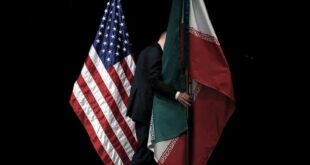 TEHRAN (FNA)- The chairman of Iran’s biggest car maker accused France of “inappropriate policies”, which he said are hampering joint ventures in a country where French manufacturers have a 40 to 50 percent market share.
TEHRAN (FNA)- The chairman of Iran’s biggest car maker accused France of “inappropriate policies”, which he said are hampering joint ventures in a country where French manufacturers have a 40 to 50 percent market share.
France is Iran’s biggest trading partner but “surprisingly, in financial matters their treatment of us is like one with a country of few bilateral ties,” Manouchehr Manteghi, chairman of Iran Khodro Company (IKCO), told AFP.
In July, IKCO, the Middle-East’s biggest car company, celebrated the 20th year of cooperation with Peugeot, whose 405 and 206 ranges it manufactures under license.
Seven different Peugeot models accounted for about 64 percent of the total 542,000 passengers cars and pickups produced by Manteghi’s company in 2007.
In addition, IKCO and the country’s second-largest car manufacturer Saipa produce the Logan in a joint venture with Renault worth hundreds of millions of dollars.
“The first problem we have with Peugeot and Renault is basically France’s policies,” Manteghi said.
Since President Nicolas Sarkozy’s election in 2007, France has toughened its position towards Iran and has supported UN Security Council sanctions against Iran for its failure to heed ultimatums to give up the NPT right of uranium enrichment.
“Given they seem to be moving in line with US politics, they are (significantly) harming our trade level, which has been built up with much mutual energy and efforts,” the IKCO chairman said.
Despite acknowledging the impact of sanctions, Manteghi rejected any notion that the measures might damage the company.
“Sanctions may increase costs but they cannot stop us in terms of technology,” he said.
“With our sites in Tehran, (the northeastern province of) Khorassan and abroad, we will achieve a production capacity of one million cars per year in about 18 months,” Manteghi said.
Iran’s total fleet of around 10 million passenger cars and pickups also includes brands like South Korean Hyundai, Germany’s Mercedes Benz and BMW as well as Japan’s Toyota and Mazda – eye-catchers in big cities.
However, IKCO already holds a 60 percent share of the Islamic republic’s home market and is focusing its growth plans on foreign markets with a view to becoming Asia’s number-four car producer.
Group sales in 2007 reached about 9 billion dollars and the chairman has an ambitious expansion timetable for coming years.
“We plan to increase sales to 20 billion dollars in 2010” followed by another doubling by 2015, he said.
The value of IKCO’s exports rose from 150 million dollars in 2005 to 510 million dollars in 2007 and the target this year is 700 million dollars.
Foreign markets the company supplies include Algeria, Jordan, Lebanon, Saudi Arabia, Venezuela and the Commonwealth of Independent States.
IKCO has built manufacturing plants in countries including Egypt, Senegal and Syria.
“The priority to target a market is its economic advantages. But political issues also facilitate and accelerate the job,” Manteghi said.
IKCO group, a public joint stock company established by private owners in 1962, no longer produces only passenger cars, trucks, buses and parts.
It is also involved in the rail sector, airport installations and the refinery industry.
With a registered capital of 6.3 trillion rials (over 635 million dollars) on the stock market, IKCO’s shareholders plan to increase this to 8 trillion rials (close to 810 million dollars) in the current Iranian year, to March 2009).
According to Manteghi, the company’s assets are worth 10 times more than its share capital.
To secure the needed cash, IKCO is modifying its financial structure by selling some of its properties. In addition, as it heads towards automation, the company will reduce its 37,000 workforce, he said.
The Logan-90 project, signed in March 2004, had a chequered history and was held up by a disagreement on whether the cars could be exported from Iran to markets where Renault is already present.
The production target for 2008 was 75,000, but according to Manteghi only around 45,000 have been produced.
Manteghi blamed the “methodology chosen by Renault in relations with Iranian part makers as well as a miscalculated cash flow”.
“Renault handed over the matter of primary materials to part manufacturers and they got into trouble because they did not have a strong (financial) basis,” he said.
Logan-90 production problems will be mostly overcome in 2009, the chairman predicted, noting that IKCO plans to use Logan’s assembly line to manufacture vans and pickups in the near future.
 Eurasia Press & News
Eurasia Press & News


